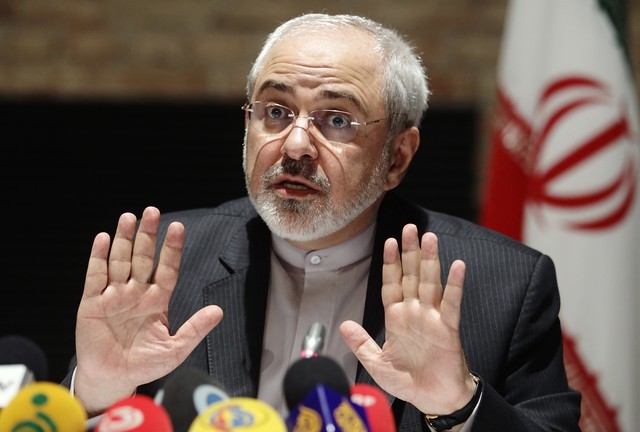By Chandra Muzaffar
There is no guarantee that the preliminary agreement reached in Lausanne, Switzerland, on 2nd April 2015 between Iran, on the one hand, and the United States and five other world powers, namely, Britain, China, France, Germany and Russia, on the other, in relation to Iran’s nuclear programme will lead to a final accord at the end of June this year, as envisaged by the parties concerned.
There is considerable opposition to the agreement especially in the US. A lot of Republican lawmakers and some democrats are opposed to it. They allege that the deal does not protect Israeli interests. There are powerful Israeli lobbies in the US who have condemned it. The Israeli Prime Minister, Benjamin Netanyahu, an implacable opponent of any negotiations with Iran from the very beginning, has described the agreement as a threat to the very survival of Israel! Netanyahu and his allies in the US are mobilizing various groups and individuals to stop the signing of the final accord.
Some of the hardliners in Iran within religious, political and media circles are also unhappy with the Lausanne agreement. They feel that it imposes severe restrictions upon Iran’s nuclear programme and infringes upon the nation’s sovereignty. But the vast majority of Iranians — it appears from media reports — are in a celebratory mood. They are happy because the final accord will lead to the lifting of sanctions pushed forward by the US, the European Union and the United Nations in recent years that have weakened the Iranian economy and brought widespread suffering to the people.
The sanctions were terribly unjust because they were based upon the false premise that Iran was manufacturing nuclear weapons when the International Atomic Energy Agency (IAEA) which had over years conducted the most intrusive and extensive inspections of Iran’s nuclear facilities failed to produce even an iota of hard evidence that suggested that Iran’s nuclear programme had some other ulterior motive. Doubts raised on a couple of occasions and accusations hurled by IAEA inspectors, highlighted by the global media, turned out to be hollow largely because they were inspired by fabricated “evidence” supplied by Israeli intelligence.
It is also important to emphasise that right from the outset Iran’s supreme leaders, first Imam Khomeini and then the current spiritual head, Ayatollah Khamenei, had declared on a number of occasions that manufacturing, storing and deploying nuclear weapons is “haram” ( prohibited) in Islam. Iran’s nuclear programme is only for peaceful purposes with the focus upon generating electricity and undertaking medical research. The agreement recognizes Iran’s right to develop nuclear energy for such goals. Harnessing nuclear energy for peaceful purposes is part and parcel of the national agenda of more than 40 countries — a right recognized under the Non-proliferation Treaty (NPT) of which Iran is a signatory.
To demonstrate in unequivocal terms its total commitment to peaceful uses of nuclear energy, Iran should now lead a campaign to declare West Asia and North Africa (WANA) a Nuclear Weapons Free Zone. No country and no entity in the region should be allowed to manufacture, keep or use nuclear weapons. Every country and every entity should be prepared to be subjected to IAEA inspections. This will put the only state in the region that is known to possess nuclear weapons to the test. Israel should not be treated as a special case in this instance. There should be a massive mobilization of public opinion within and without WANA to force Israel to dismantle its nuclear arsenal. It is grossly unfair that the one entity that has been most vocal in denouncing Iran’s unproven nuclear weapons has escaped scrutiny of, and censure about, its own nuclear weapons arsenal from the world community. After the Lausanne agreement we should all now turn our attention to Israel and demand that Israel demolish its stock of nuclear
weapons immediately and pledge not to produce such weapons any more. A nuclear weapons free WANA is the best hope for peace and security for all the states in that region, including Israel.
Iran should also campaign to abolish other weapons of mass destruction such as biological and chemical weapons from WANA. There are a few states in the region that continue to stockpile such weapons. This again will help usher in an era where there is less barbaric violence and brutal massacres.
In this regard, Iran should also join groups in other parts of the world and campaign for the prohibition of war as a means of settling conflicts between and within nations. It would be amazing if such a campaign took root in WANA which has witnessed so many wars since the end of the Second World War. In fact, I had hoped when a revolution took place in Iran in the name of Islam in 1979 that Iran would pioneer a new approach to international relations by championing the cause of a world without war and a world without nuclear weapons and other weapons of mass destruction.
It may still happen if the agreement of 2nd April evolves into a comprehensive accord at the end of June 2015 and politics in WANA slowly moves in a different direction.
Dr. Chandra Muzaffar is President of the International Movement for a Just World (JUST).
Malaysia.
4th April 2015.

